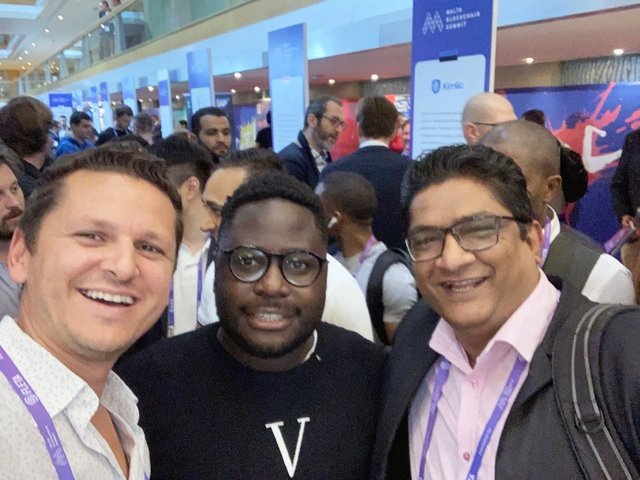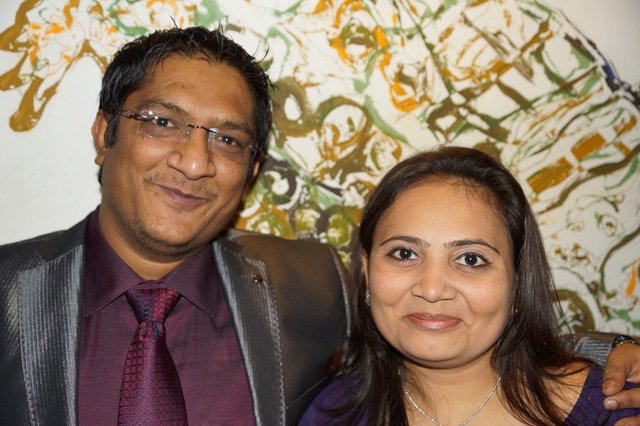New TOP adviser on our boat — Paresh Masani
Paresh Masani: “Financial Markets and Big Corporations Will Adopt Blockchain, They Have No Other Choice”.

Ciprian Popa, #ORYX coin CEO, Ian Balina, and Paresh Masani
Sofia Paskal, influential blogger and experienced blockchain PR specialist, spoke with Membrana Advisor Paresh Masani right after the Malta Blockchain Summit 2018. Despite some scepticism from the market and six month flat pricing for Bitcoin, the event went well, and there are definitely some signs of growth in the industry. Most of that growth is inspired by institutional and long-term money coming in, and that’s why the interview got focused on strategy and vision.
Sofia Paskal: First of all, thanks for the meeting. I understand that this was difficult, given your tight schedule. Let’s talk a bit about your history with crypto. You have an extremely impressive profile with very solid track record in investment banking. Can you tell us a bit about that part of your life: was it a smooth way, what were your biggest inspirations and, at the end of the day, what made you step outside the corporate world to pursuit the new chaotic blockchain universe?
Paresh Masani: Sure. You may be surprised but I’m one of the earliest bitcoin adopters. Ten years ago when Satoshi Nakamoto published his legendary white paper (which most people call manifesto) I was watching closely. For me it was clear that the new industry was born and that the era of centralization will soon become history.
Between 2010 and 2013 I was working with one of the market trading platforms, and at that time we, being a financial company, studied possibilities of investing in crypto at early stages, including Bitcoin. Cryptocurrencies looked revolutionary enough to hope for a fast adoption, and the management decided not to make that bet.
But my interest in this topic kept increasing in coming years. Now, after more than a decade in corporate sector, I’m pursuing opportunities of smaller startup projects. I’m a big believer in blockchain and most of my projects (or ones that I collaborate with) employ this technology.
As particular names are concerned, I’m a big believer in Ethereum. The project has a very solid team of developers which is far ahead of any competition (not that there is any project to mention as a comparison). There is no need to worry about current price dip, the token has great potential and will recover eventually.

SP: What is your global long-term view on investments and how does technology affect the sector? For the last decades it looks like Vanguard type funds are defeating dedicated asset management, and algo-trading is getting automated, taking human traders out of the picture. Is there an end to this trend?
PM: Well, this is an important question, and that is a point where projects like Membrana come to the stage. Let’s split this into two. First, in terms of “independent versus third party management”, I stand in the conservative camp. There always will be independent investors, like myself, and always will be people who need professional advice or account management services. And seeking the best option and the best performance is of great importance given the market uncertainties.
And when it comes to trading techniques, I’ve been deeply interested in algorithmic trading for some time. AI and all sorts of automation methods (like, visualization, arbitrage calculators, portfolio trackers etc) are helping a lot. But after all, there is human in the decision maker’s chair. You can automate problem solving but you cannot know what problem you will be solving.
So, humans will be there in 5 and 10 years, no question about that.

SP: Where do you stand in terms of big banks versus small investment firms, exchanges and independent consultants? Are “too big to fail” ones capable of operating on decentralized basis? They seem to have this third party gene embedded in their DNA — will they surrender to change?
PM: Let’s be honest: historically there was this scheme which people talk a lot about, “you — your bank — exchange — intermediary — your clients bank — your client”. Now with blockchain the idea was to switch to “you — blockchain — client” but in fact for now there is still “bank” on both ends of the chain.
No surprise here: general people maintain fiat mentality. Have a look at ICOs and blockchain deals: many donations are accepted in fiat, the majority of projects have soft caps, hard caps and budgets in fiat. So, effectively, fiat remains the world’s basic currency.
And there is one big “BUT” in this equation: the genie is out of the bottle and there is no return. Big banks, exchanges and regulators can have doubts and reservation about the new environment but they will have to accept this reality. Pigeon post won’t work well when everyone around uses email.
SP: Speaking generally of blockchain based solutions. Do you thinks that decentralized platforms avoiding third party and intermediaries will be competing on the same scale any time soon?
PM: I believe they will. There are still many technical limitations to the process, for example, it is impossible to establish effective cross-blockchain operation. But the further we move, the more ground is there for fully functioning blockchain solutions.
SP: What startled you in Membrana and what was you argument to join the project? Where do you see it in several years? Are there any bigger bottlenecks than regulation, currency cross-board restriction and legal framework? Will this project help to bring investors’ mentality across the globe to one standard?
PM: The core element I pay attention to is the project’s team. With Membrana, I saw a very motivated team with very strong competence and experience. When we started talking with Yuri, the project’s COO, I came to realize that they are cooking a useful product. And, important enough, the budget looks reasonable: have a look, they are not raising much funding. In addition to that, I was already in contact with some of the investors working with Membrana, and that is how things lined up.
I feel that the project will be a major success. And look forward to work closely with the team through upcoming years.
Stay with us!